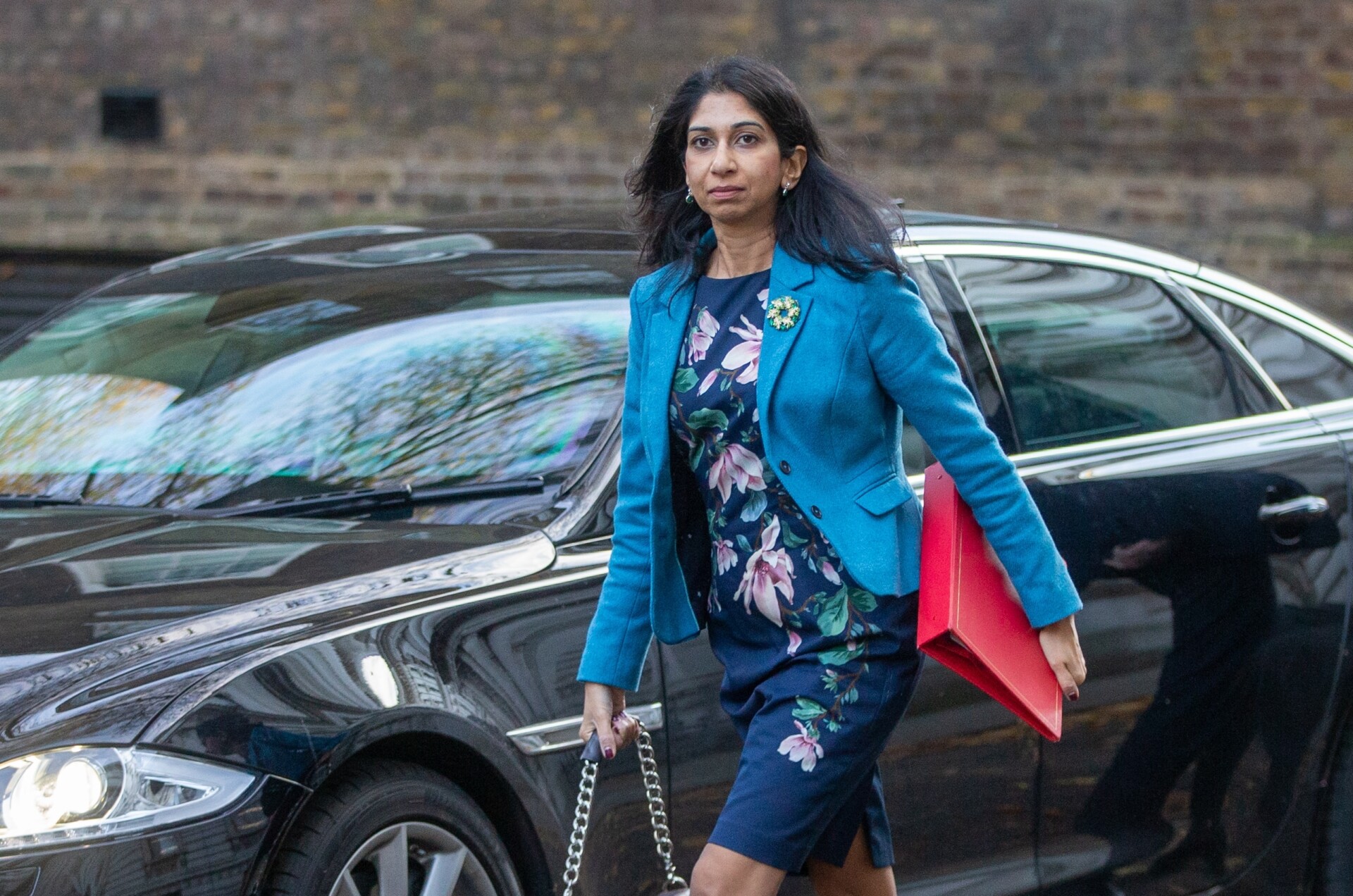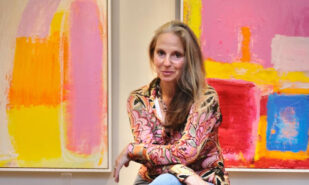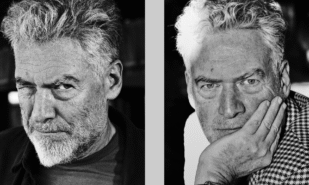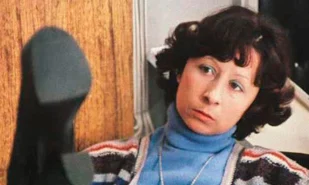Suella Braverman: Multiculturalism is toxic for Europe.
This week, UK Home Secretary Suella Braverman travelled to Washington, DC to give a speech on “illegal migration” at the American Enterprise Institute. The main purpose of the trip and speech was to discuss the consequences of illegal migration and asylum in the US, UK and Europe. Braverman did not present practical solutions but called on the international community to “start a conversation on this topic.” So, in her opinion…
• Migration is an “existential challenge” for the Western world because political systems that cannot control the process will not survive in the future. Braverman said migrants were putting pressure on public services and in the UK alone the cost of the asylum system had doubled to almost £4 billion between 2020 and today.
• Migration is driven by “economics and demography,” Braverman argues, citing statistics from the United Nations High Commissioner for Refugees (UNHCR), the World Bank and Gallup: “16% of the world’s adults—about 900 million people—would like to permanently leave their own countries.” However, she acknowledges that wars, political instability and climate change can also “exacerbate” the increasing flow of refugees.
• The problems associated with migration are defined by the “misguided dogma of multiculturalism”, which “has proven toxic to Europe over the past few decades”: “Immigration is happening too fast, too often, with very little attention paid to promoting integration and social cohesion.”
• Separately, Braverman noted the “threat to public safety”: polls in the US and Europe showed that people “want thegovernment to control their borders.” In her opinion, lack of control “will undermine the legitimacy of democratic institutions and create the conditions for more extremepolitics.”
• The secretary criticised and called for reform of the 1951 UN Refugee Convention, a multilateral treaty drawn up after the Second World War that defines what a refugee is and what rights they have. “Well-intentioned legal conventions and treaties” have now led to a situation where 780 million people are potentially able to seek asylum and refugee status, allowing “economic” migrants to “shop around” for a country in which they can settle. Citing UN data that suggests nearly 50,000 people have died trying to cross borders since 2014, Braverman said: “All of these people were no doubt seeking a better life, and perhaps some of them were genuine refugees, but not all of them [could be classified in this category.]” ” We will not be able to sustain an asylum system if in effect, simply being gay, or a woman, and fearful of discrimination in your country of origin, is sufficient to qualify for protection,” she said.
• “We are living in a new world bound by outdated legal models. It’s time to acknowledge it,” Braverman emphasised.
For the sake of objectivity, it should be noted that the statistics cited by Braverman differ from the official ones: 780 million is the number of people who may be granted protection – an approximate figure based on the findings of the Centre for Policy Research (a think tank, but not a UN body). According to UN statistics, in 2022 there were 35 million refugees in the world, of which only 231,597 lived in the UK. The vast majority (76%) of migrants are settled in low- and middle-income countries.
The speech generated a lot of debate from various institutions and platforms, including the Labour Party, immigration and asylum NGOs, and the media. Opinions are largely divided. In particular, the UN published a statement emphasising “the importance of the International Refugee Convention.” It is argued that the Convention remains “life-saving instrument that ensures millions of people fleeing conflict and persecution each year can access safety and protection across borders.” “Where individuals are at risk of persecution on the basis of their sexual orientation or gender identity, it is crucial that they are able to seek safety and protection… The need is not for reform, or more restrictive interpretation, but for stronger and more consistent application of the Convention and its underlying principle of responsibility-sharing,” the statement said.
UNHCR also outlined potential solutions to the UK’s migration crisis: “An appropriate response to the increase in arrivals and to the UK’s current asylum backlog would include strengthening and expediting decision-making procedures. This would accelerate the integration of those found to be refugees and facilitate the swift return of those who have no legal basis to stay… UNHCR also welcomes the UK’s enhanced dialogue with its European neighbours and encourages efforts to enhance regional cooperation to address current challenges. Expanding safe, regular pathways for refugees to travel to the UK would also offer real alternatives to dangerous, irregular journeys.”
UNHCR’s statement was supported by the UK’s shadow home secretary, Yvette Cooper, who said ” Suella Braverman’s speech was desperate attempt to distract from her total failure to tackle Tories asylum chaos ” in the country. Cooper noted that “no practical solutions” have been proposed, but there is “only ramped up rhetoric & looking for others to blame.” The Shadow Home Secretary also believes the speech is opportunistic in light of the upcoming general election. So, if Rishi Sunak loses the election, Braverman could stand as a candidate for the leadership of the Conservative Party, given that she already unsuccessfully ran for this post last summer.
Bisi Alimi, a Nigerian activist and refugee who was persecuted for his sexual orientation and left Nigeria to immigrate to the UK, told GB News that “the British government is currently playing dog whistle politics rather than actually addressing the issue.” “There are more than 100,000 people seeking asylum in the country, among them lawyers, doctors, nurses – people who can contribute to the National Health System. They are on a waiting list and are not allowed to work. And I believe that this is exactly what we should be talking about. If my case were based today on the arguments of the Home Secretary, I would be deported back to Nigeria and could be killed there. We want people to provide evidence that their lives are in danger, but we use the barometer of Western civilisation to define the term “danger”… In many countries, especially in Africa, the danger goes beyond the state and the police: here we are talking about society, families, we talk about murders, corrective ratesand things like that… When we try to present this data to [asylum] case workers, it seems very unclear. The cultural context is not considered in the immigration system,” Alimiemphasised.
Nevertheless, the number of those who share Braverman’s position is no less than the number of critics. Tim Loughton, Conservative member of the Home Affairs Committee, backed the minister’s arguments and told the BBC that “the UK cannot be the refugee camp for the entire world and that’s why we need to look at exactly how these international agreements can work in the 2020s.”
Chris Philp, the UK’s police minister, agreed with Braverman in an interview with Good Morning Britain and noted that “economic migrants exploit convention to try and claim asylum to move between countries.” He believes the speech “calls for international cooperation” around the issues of illegal migration and “not just the UK.”
Ben Habib, a former member of the European Parliament for the Brexit Party, also expressed solidarity with Braverman: “Multiculturalism, as lovely as it sounds… hasn’t worked… because largely we’ve had too much immigration too fast…, and then when the cultures come to our country, they tend to live in silos. We’re not homogenising. And for a society to benefit from immigration, to benefit from different cultures, it’s got to homogenise, there’s got to be a sharing of values.”
Gavin Mortimer, a British writer, wrote in the Spectator that “Suella Braverman is right – the UN Refugee Convention is no longer fit for purpose. The United Nations has taken a sharp turn to the progressive left… for a number of years coming increasingly under the influence of China.” He said: “this was evident last year in the UN’s reluctance to criticise China’s human rights’ abuses against Uyghur Muslims in Xinjiang province. How is that the UN finds it easier to criticise Britain and Italy for wanting to protect its borders than it does China for crimes against humanity?” “It’s not just the United Nations Refugee Convention which is in urgent need of reform”, says Mortimer, “the organisation as a whole has outlived its purpose.”
Whether Braverman’s speech will influence the future of global migration policy is uncertain, but it has surelyreminded the world how serious the migration problem is from a global perspective and how much it requires immediate solutions.













